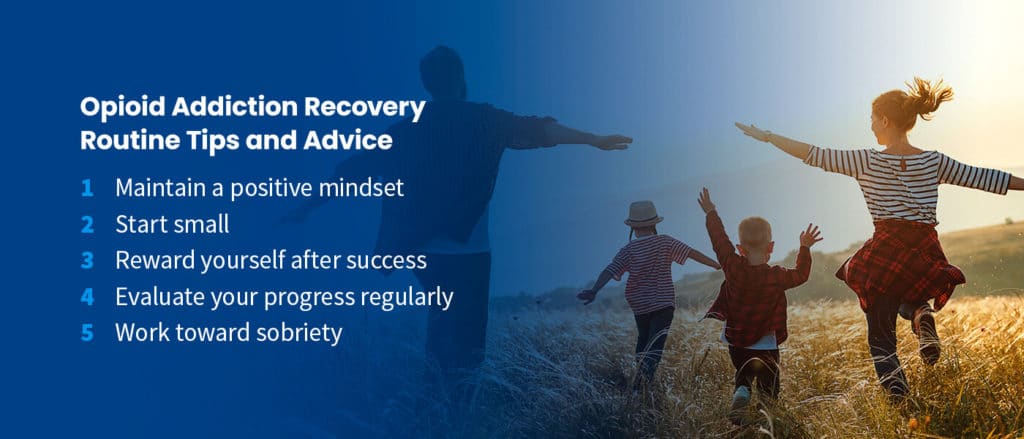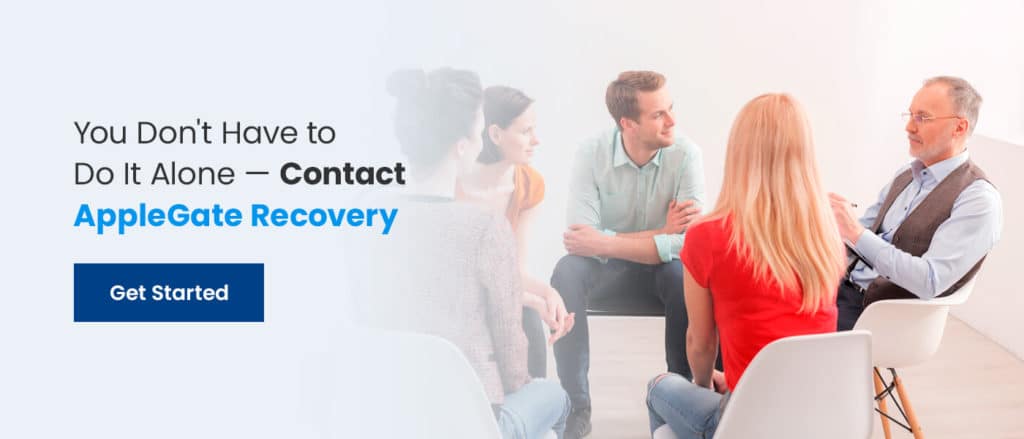
If you’re going through opioid addiction recovery, you’ll know firsthand that conquering substance misuse isn’t a matter of willpower alone. At times, it can be easy to fall back into the habits that led to dependency in the first place. Research shows that it takes anywhere between 18 and 254 days to replace old habits with new ones.
For successful addiction recovery, you should have structure and routine in your life so you can build positive and beneficial habits. This guide will outline why structure and routine matter for overcoming substance misuse and give you key addiction recovery tips and advice.
Benefits of Structure and Routine in Opioid Addiction Recovery
There are many reasons why structure and routine are crucial for overcoming substance misuse. Ultimately, humans are creatures of habit — we like to know what to expect and have our days follow similar patterns. If harmful routines aren’t broken and replaced, falling back into them may be inevitable. Therefore, incorporating new positive habits into your life is important to fully combat substance misuse.
Having structure and routine in your recovery process helps you regulate what you’re thinking and feeling and identify potential pitfalls and how to avoid them. For example, too much spare time can be detrimental to your recovery efforts, especially early on in the process. An established and beneficial set of habits can help you avoid common pitfalls that draw you back into substance misuse.
One of the best benefits of routines is that you can start accomplishing your goals immediately, even if it’s little by little. This lets you start your day on a positive note and will help you feel more productive and accomplished. Achieving substantial goals is difficult without a plan. If you build a routine that reflects your overall recovery goals, such as eating a healthy breakfast each morning, you can realistically work toward recovery step by step.
Plus, habits are helpful for improving your physical health. The aftermath of opioid misuse can leave individuals with health issues, such as temporary insomnia, diabetes and hypertension. Creating healthy dieting, exercising, and hygiene routines can help you improve your overall health as you work toward recovery.
Overall, recovery is a lifelong goal. Even when you achieve opioid misuse recovery, you still have to work to maintain your sobriety. A well-planned, effective set of habits can give you the structure you need to stay sober for months and years to come. While it won’t be the only step you need to take to overcome opioid misuse, it’ll certainly help you build a healthier life free of substance misuse.

Opioid Addiction Recovery Routine Tips and Advice
While the benefits of having a structure and routine are clear, you should consider certain points when building your own habits. Here are just a few to keep in mind and think about — sleep, exercise, food, work, counseling/support, religion and personal hygiene. These, among others, are essential areas to have an established routine during recovery. Alongside any other areas you want to incorporate that aren’t listed, they can help you live a healthy and positive life.
As you start working toward building your habits, consider the following to help you stay on track:
- Maintain a positive mindset: Try to be positive about the changes you’re making and believe they’ll work. If you go into your new routine doubtful and unconvinced about your success, you’ll likely find yourself discouraged before you notice any remarkable changes. Having a positive outlook on the changes you’re making is critical to ensuring they become part of your everyday life.
- Start small: Aiming for too much change at once can be unsustainable, especially after the enormous change of sobriety. Start with small changes and habits to slowly build the routine you want. For example, consider exercising once a week until the action of going to the gym feels natural. Then, you can increase your sessions based on the goals you’ve set for yourself.
- Reward yourself after success: If you accomplished your goals for the week, like exercising a certain number of times, then treat yourself! Rewarding yourself can reinforce your good habits and make it much easier to stick with the new changes.
- Evaluate your progress regularly: It’s important to benchmark your progress to see what’s working. As you’re developing new structures and routines, trial and error will be inevitable. There are so many tricks and suggestions that it makes sense to experiment until you find habits that work for you. Don’t be afraid to make changes to your plan when something isn’t working.
- Work toward sobriety: Remember that your end goal is sobriety, so every action you take should contribute to achieving it. If a part of your schedule and routine isn’t contributing to your recovery the way it should, you should make adjustments.
You Shouldn’t Stop After Recovery
Even after you’ve successfully achived sobriety for several months, you shouldn’t abandon your habits. If you do that, you may end up back at square one, and you’ll have to go through the process again. Keeping your newfound structure and habits in place is important because they helped you overcome substance misuse.
If it feels like you’ve reached your goal and you don’t have anything to work toward now, keep in mind that the recovery process lasts a lifetime. Every sober day that passes is a win. Continue to pursue and maintain a sober lifestyle by keeping with your current habits and setting more as you deem necessary.
You Don’t Have to Do It Alone — Contact AppleGate Recovery Today
Developing a new structure and routine of opioid addiction recovery efforts can be difficult to do alone. Let AppleGate Recovery help you achieve a lifetime of sobriety. The professional staff at AppleGate offers a variety of counseling methods for opioid addiction in both group and 1:1 sessions. Additionally, we provide addiction recovery help in the form of comprehensive treatment plans for opioid recovery.
If you’re ready to start living by healthy and positive habits, contact us online today or call 888-488-5337 to get started!

Contact AppleGate Recovery Today
If opioid addiction is impacting your life or the life of someone you care about, reach out to our treatment center. We are here to provide the support and care you need to take the first step toward recovery.
Call 888.488.5337
